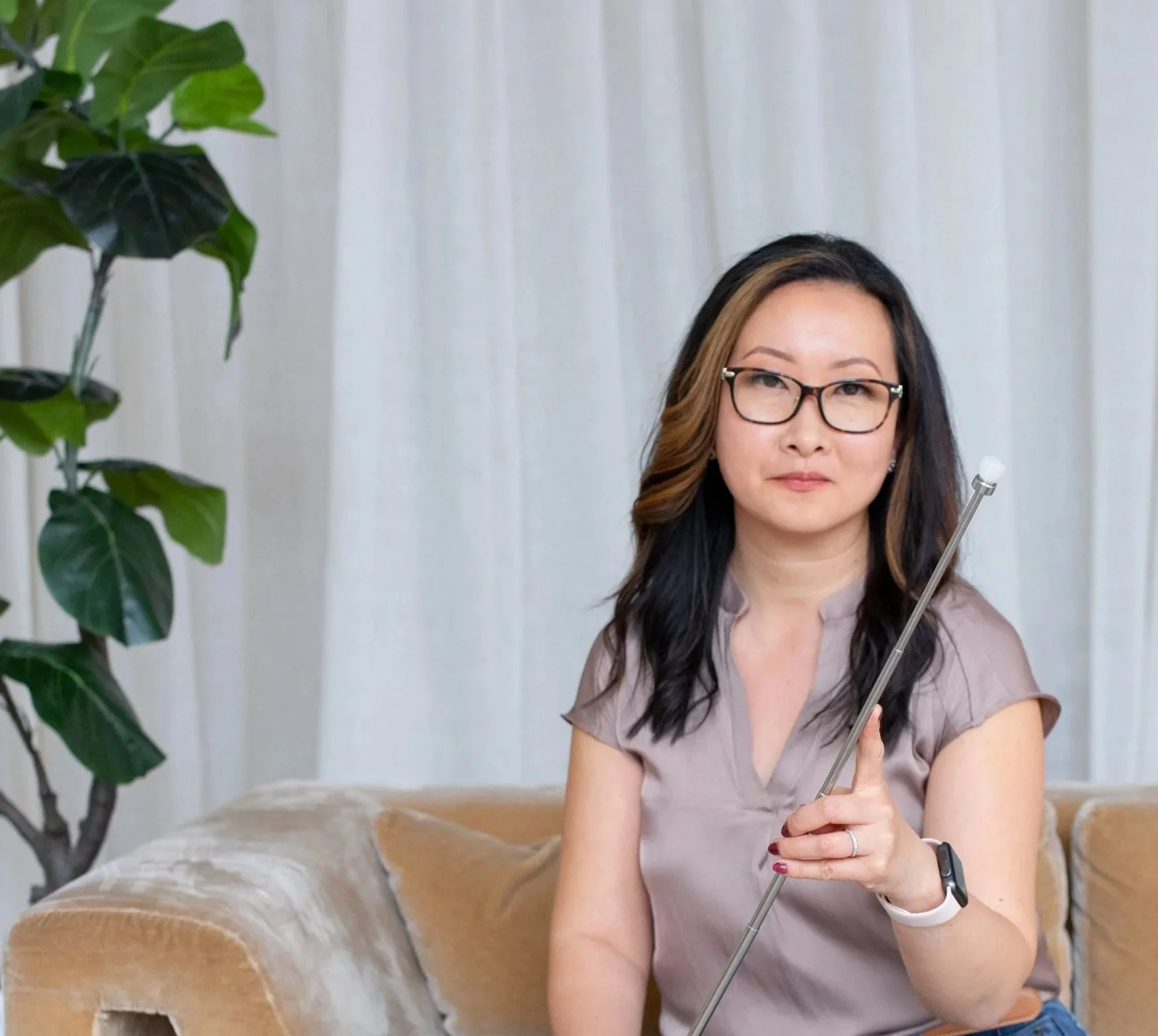You Might Consider Brainspotting if You:
Feel stuck in patterns of anxiety, stress, or trauma
Haven’t found relief through traditional talk therapy
Want to heal without constantly revisiting your trauma through words
Are seeking a deeper, more embodied healing experience
Want to boost your self-confidence, focus, or performance
Brainspotting Therapy
What is Brainspotting Therapy?
Sometimes, healing isn’t just about talking — it’s about tuning into the places in your body and mind where words haven’t quite reached.
Brainspotting is a gentle, focused approach that helps you access and process emotional pain, trauma, or stuckness in a different way. You can think of it like this:
Imagine your brain is a vast library. Some memories and experiences are neatly stored and easy to reach. But others — especially the painful or overwhelming ones — get pushed into the back shelves, hidden in the dark. You might not even know they’re there, but your body still remembers.
Brainspotting helps shine a light into those hidden corners. By guiding your gaze to a specific “brainspot” — often linked to where your brain is holding unprocessed emotion — we can begin to access and gently release what’s been stored there. It’s not about reliving trauma, but about giving your brain and body a chance to heal in ways that talking alone sometimes can’t reach.
Using stillness, body awareness, and a strong therapeutic connection, Brainspotting creates space for deep healing — from the inside out.
Brainspotting creates space for deep healing — from the inside out.
What is Brainspotting Therapy for?
What Can Be Worked on in Brainspotting?
Trauma (including PTSD, complex or developmental trauma)
Emotional regulation and overwhelm
Fears and phobias
Negative self-beliefs or inner criticism
ADHD/ADD
Chronic stress or pain
Performance blocks (creative, athletic, academic, etc.)
What Happens in a Brainspotting Session?
In a Brainspotting session, we start by identifying something you'd like to work on — this could be a feeling, a memory, or a challenge you're facing. You’ll be gently guided to notice where and how this issue shows up in your body or mind.
Together, we’ll find a specific eye position — or “brainspot”, that’s connected to what you’re feeling. From there, you’ll be invited to stay with that spot while simply noticing what comes up, without needing to analyze or explain it all.
This process helps your brain and body access and release what’s been held beneath the surface. Many people describe feeling lighter, clearer, or more at peace afterward. As your system settles, there’s also space for insight, deeper self-awareness, and a stronger connection to your inner wisdom or higher self.
How Many Sessions are Suggested?
Everyone’s experience is different. Some people notice shifts after one session, while others may need several. Processing often continues after the session ends, and we may explore the issue over multiple sessions using different eye positions to support healing and build positive pathways in the brain.
Brainspotting can be one of the modalities used in therapy. For clients who are looking for faster healing, Brainspotting Intensives are offered to allow for additional time for deeper processing. These typically take several half-day sessions.
What Makes Brainspotting Different From Other Types of Therapy?
While traditional talk therapy often works “from the top down”—using conversation, insight, and logic to process experiences—Brainspotting takes a “bottom-up” approach. This means it directly engages the deeper emotional and subcortical parts of the brain where trauma, stress, and unresolved memories are often stored.
Developed by Dr. David Grand as an evolution of EMDR (Eye Movement Desensitization and Reprocessing), Brainspotting builds on EMDR’s principles of using eye position and focused attention to access the body’s natural ability to heal. However, it goes even deeper by identifying precise “brainspots”—eye positions linked to emotional activation—allowing the nervous system to process and release trauma that talking alone often can’t reach.
The result is a powerful, neuroscience-informed therapy that helps clients resolve trauma, anxiety, and emotional pain at their root, not just manage symptoms on the surface.
More Resources
Video: https://youtu.be/jcqvyDfpxfM
Brainspotting Website: https://brainspotting.com/about-bsp/what-is-brainspotting/
Book: Brainspotting by David Grand, PhD (also check your local library): https://www.amazon.ca/Brainspotting- Revolutionary-Therapy-Effective-Change-ebook/dp/B00C2BYPNI
Podcast: Surrendering to Uncertainty - featuring David Grand, PhD
Source: Brainspotting: The Revolutionary New Therapy for Rapid and Effective Change by David Grand, PhD.

Diane Hua-Stewart Psychotherapy
Registered Psychotherapist Ontario
Certified Brainspotting Therapist
Individual and Couples Counselling
Servicing Areas of the Greater Toronto Area and Across Ontario



